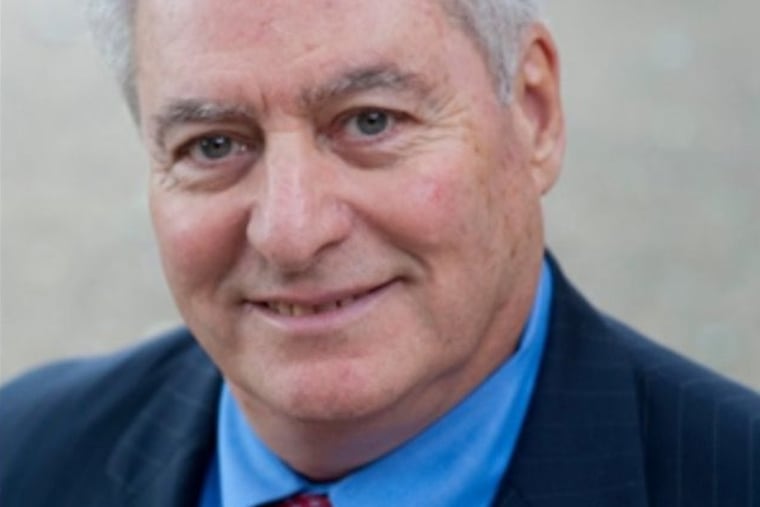Ted Kirsch, longtime Philadelphia teachers’ union chief, dies at 81
“People of all political stripes saw his fundamental fairness,” Randi Weingarten, president of the American Federation of Teachers, said of Mr. Kirsch.

Ted Kirsch, 81, a social studies teacher who went on to play a significant role in the national labor movement, died Tuesday, Jan. 19, of lung disease at his home in Jenkintown.
Mr. Kirsch was a pioneering member of the Philadelphia Federation of Teachers, the union that won collective bargaining rights in 1965. In the early, tumultuous years of the PFT, Mr. Kirsch walked picket lines and went to jail for the labor cause, emerging as a gifted tactician and leader. He served as PFT president for 17 years and as president of the American Federation of Teachers Pennsylvania for 12 years.
“He was a fighter and a doer and a strategist,” said Randi Weingarten, president of the American Federation of Teachers and a longtime friend of Mr. Kirsch.
The son of two trade union members, Mr. Kirsch was born in South Philadelphia and educated in Philadelphia public schools. He was the first member of his family to go to college, earning degrees from what is now West Chester University and Temple University.
In 1960, he became a Philadelphia School District employee, teaching social studies at Thomas Junior High in South Philadelphia. He wore a suit and tie every day and never talked about his age because he looked so young.
Mr. Kirsch later taught at Washington High and Overbrook High, where he instructed what is believed to be the district’s first African American history class.
He was a dynamic teacher, running around his classroom, getting students excited about the material, Mr. Kirsch said in a 1990 Inquirer interview. “My classes were never boring. I put on five shows a day.”
In the early part of his career, Mr. Kirsch might have 50 students crowded into a classroom, with not enough chairs for all. He chafed against what he believed were unfair teacher working and student learning conditions, joining the nascent Philadelphia Federation of Teachers in 1964.
In a photo from the time, Mr. Kirsch stands with the Rev. Dr. Martin Luther King Jr. when the civil rights leader threw his support behind the PFT, saying the union would “bring great gains to 270,000 children in the city.”
Through the years, Mr. Kirsch advocated for smaller class sizes, full-day kindergarten, safe schools, and increased funding for public schools.
Mr. Kirsch was elected to the PFT executive board in 1967 and eventually left the classroom to work full time for the union. After serving for years as vice president and staff director for then-PFT president Marvin Schuman, Kirsch was elected president in 1990. He served six terms, resigning in 2007 to lead the state chapter of the union, American Federation of Teachers Pennsylvania. Mr. Kirsch retired from that job in 2019.
During his leadership of the PFT — which currently represents 13,000 teachers, nurses, secretaries, and other school-based workers — Mr. Kirsch also served as secretary-treasurer of the Philadelphia Council AFL-CIO.
He was, Weingarten said, “foundational to the AFT, one of the people who kept our movement together.” Weingarten often turned to Mr. Kirsch, a longtime AFT vice president, for advice or to handle matters others avoided — such as dealing with a local accused of misappropriating funds or a contested election.
“People of all political stripes saw his fundamental fairness,” said Weingarten. “He was a trade unionist, but he would brook no dishonesty or violation of the democratic rules.”
As a labor leader, Mr. Kirsch often found himself in volatile situations — from bitter contract disputes to the state takeover of the school system and the threatened turnover of the whole district to private operators. But Mr. Kirsch was not a volatile person.
In 2000, the PFT went on strike. “Everyone around me is worried,” Mr. Kirsch told The Inquirer at the time. “But I’m very calm.”
He was also very good at his job. The strike was called on a Friday and over by Monday, due in large part, Weingarten remembers, to Mr. Kirsch’s leadership.
Jerry Jordan, who succeeded Mr. Kirsch as PFT president, hailed him as “a pioneer.”
“He was quite an advocate for children as well as for working people,” Jordan said. “He really fought for a lot of social justice issues at a time when they were much more difficult fights than we have today.”
Mr. Kirsch won scores of awards, visited the White House, and was a player on the local and national labor stage. But he loved nothing so much as being a family man.
He was married for 57 years to Roberta Kirsch, who died in 2017. They met on a blind date when she was 16 and Mr. Kirsch 18, and married two years later. He was devoted to his two children, Jodie Kirsch Lachman and Joel.
“He always put us first — my father could be in a meeting with 500 people, but if I called, he would always take the call,” said Lachman.
“He was an enormously decent person,” said Joel Kirsch. “At his absolute core was empathy for everyone, in public and in private.”
Even at the end of his life, Mr. Kirsch was rooted in helping people. Three days before his death, he learned the mother of his granddaughter’s boyfriend, a teacher, was having trouble with her retirement benefits. Mr. Kirsch was critically ill, but insisted on helping her iron out the situation.
Mr. Kirsch adored being Poppy to his four grandchildren. He also enjoyed travel, especially to Israel, and time spent at a vacation home in Ventnor.
Funeral services will be private.
In addition to his son, daughter, and grandchildren, survivors include a sister.
Memorial donations can be made to the Jewish National Fund for the “Ted Kirsch Forest,” 78 Randall Avenue, Rockville Centre, NY 11570.